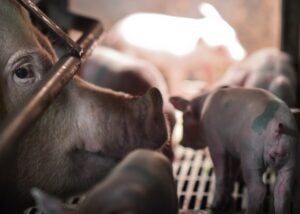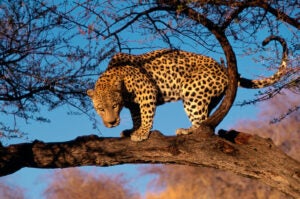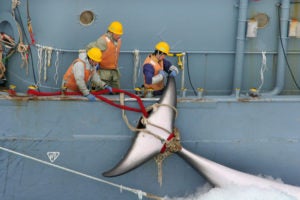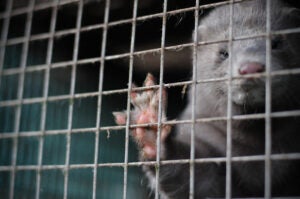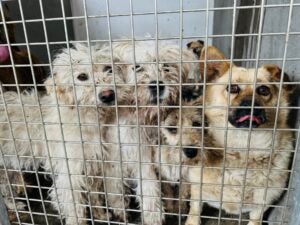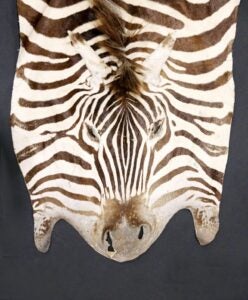
BRUSSELS—Today, the Belgian Federal government’s Council of Ministers approved a legislative proposal for a ban on the import of hunting trophies of endangered animal species, put forth by Zakia Khattabi, Minister of Climate, the Environment, Sustainable Development and Green Deal.
The Minister’s preliminary draft bill follows the Federal Parliament of the Kingdom of Belgium’s unanimous vote in March 2022 in support of a resolution demanding that the government put the brakes on the issuance of trophy import permits for a broad array of threatened and endangered species. This resolution protects species such as the hippopotamus, Southern white rhinoceros, African savannah elephant, lion, polar bear and argali sheep killed for sport. The scope of the resolution also extends to all species listed in Annex A, along with certain species in Annex B, of the European Regulation 338/97 on the protection of species of wild fauna and flora.
Member of Parliament Kris Verduyckt (Vooruit, Flemish Socialists), initiator of the legislative proposal to ban hunting trophy imports in 2020 and proposer of the aforementioned resolution, said: “I am glad that this hard work is paying off. Minister Khattabi is now fully translating my proposal into a bill and the entire Council of Ministers approves it. It’s time we really started protecting endangered species, trophy hunters prefer to kill the largest and strongest animals, the loss of which contributes to the disruption and decline of animal populations.”
The European office of animal protection charity Humane Society International, a long-time vocal advocate against the import of endangered species’ trophies, lauded the government’s decision. Ruud Tombrock, executive director for HSI/Europe said: “We welcome the fact that the unanimous resolution of Parliament has been translated into a legislative measure and look forward to studying the details of the legislation once published. Belgium is leading the way for other countries in Europe already listening to calls from their citizens to consign the import of hunting trophies to history. The next step should be an EU-wide ban on the import of hunting trophies from endangered and protected species, again reflecting the views of citizens across member states in the European Union.”
Over the past 16 months, HSI/Europe has worked with MPs to ensure that the unanimous resolution of Parliament was translated into legislation and today’s approval is the culmination of this campaign. MPs from different political parties have maintained pressure on Environment Minister Khattabi. A recent response to a parliamentary question from MP Jan Briers (CD&V, Flemish Christian democrats) revealed that the Ministry had only stopped issuing permits for importing animal trophies since mid-March 2023, a delay which outraged many MPs.
This landmark decision by the Belgian government echoes the strongly held views of its people. A 2020 survey by Ipsos commissioned by HSI/Europe showed that 91% of Belgians oppose trophy hunting and 88% support a prohibition on importing any kind of hunting trophy at all.
This sentiment is not limited to Belgium but is resonating across the European continent. A 2023 pan-European poll conducted by Savanta in all 27 EU Member States on behalf of HSI/Europe, laid bare the widespread public rejection of trophy hunting. A striking 83% of respondents stood firm against this practice, with just 6% in favor. The vast majority is expecting strong measures to be taken against trophy hunting, with a compelling majority (74%) rallying behind a national import ban and similar support for an EU-wide ban (73%). These survey results underscore a profound and growing public concern across Europe, spotlighting the urgency and importance of wildlife conservation and the protection of threatened species.
Today, Belgium has echoed the urgent European call to action against trophy hunting, joining the ranks of countries like the Netherlands, France, and Finland, which have each implemented various degrees of bans and restrictions on the practice of import of hunting trophies. Momentum against trophy hunting is accelerating across the continent, with nations including the UK, Germany, Italy, and Poland now also involved in active discussions to impose bans at varying stages of progress.
Facts on trophy hunting:
- The Netherlands introduced a trophy hunting ban for more than 200 species in May 2016, on the Annex A of European Regulation 338/97 on the protection of species of wild fauna and flora by regulating trade therein and of species in danger of extinction. The import ban also applies to the following Annex B species: white rhinoceros, hippopotamus, African elephant, mouflon (wild sheep from the Caucasus), lion and polar bear. A total of 200 animal species are affected by the import licenses ban.
- France implemented a ban on the import of lion-hunting trophies in 2015. In 2023 a Bill proposal for registration, aimed at “stopping the issuance of import permits for hunting trophies of certain endangered species was tabled.
- The import of hunting trophies into Finland is restricted since June 2023. The new Nature Conservation Act includes a provision that prohibits the import of individual animals or their parts from the most endangered species worldwide which are threatened by international trade as trophies from countries outside the EU.
- In the United Kingdom in March 2023, British lawmakers approved a ban on the import of animal hunting trophies covering 6,000 endangered species which makes it one of the toughest in the world. The legislation is now being debated in the House of Lords.
- In Germany, the Minister of the Environment, Steffi Lemke (The Greens), announced that she intends to restrict the import of hunting trophies from protected animal species. Germany terminated the Country’s membership in the International Council for Game and Wildlife Conservation (CIC) in 2022.
- In Italy in 2022, a bill aimed at banning the import, export and re-export, to and from Italy, of hunting trophies obtained from animals that are protected by CITES, was presented. After the fall of the government and the elections, in 2023 the same bill was tabled again in parliament.
- In Poland, a bill sponsored by the deputy chairperson of the Sejm, the lower chamber of the parliament, reached committee stage discussion this month and is scheduled for further progress in August 2023.
- Trophy hunting of endangered species poses a severe threat to conservation efforts and the world’s natural heritage. Trophy hunters prefer to kill the largest, strongest animals, whose loss causes declines in population. The affected species, such as African elephants, lions, rhinoceros, and leopards, among others, are already facing the risk of extinction and play crucial roles in maintaining healthy ecosystems and biodiversity. The loss of these iconic animals not only disrupts delicate ecological balances but also erodes cultural and historical significance. Many species play important roles in their ecosystems, and their removal can have cascading effects on other wildlife, vegetation, and the overall health of the ecosystem.
- The EU is the second biggest importer of hunting trophies after the United States, as indicated in a report by Humane Society International/Europe from 2021, with an average of 3000 trophies imported in the period between 2014 and 2018.
- The top 10 species imported into the EU as trophies are: Hartmann’s mountain zebra (Equus zebra hartmannae) (3.119), Chacma baboon (1.751), American black bear (Ursus americanus) (1.415), brown bear (1.056), the African elephant (952), African lion (Panthera leo) (889), African leopard (Panthera pardus) (839), hippopotamus (Hippopotamus amphibius) (794), caracal (Caracal caracal) (480) and red lechwe (Kobus leche) (415).
- The EU was the largest importer of cheetah (Acinonyx jubatus) trophies with 297 cheetah trophies imported into the EU during the study period.
- Belgium is the 13thlargest hunting trophy importer of internationally protected species in Europe
- Shortly before the vote of the resolution last year, Animal Rights Belgium, another organisation campaigning against the import of hunting trophies in Belgium, delivered a petition with 37,000 signatures supporting the ban to the Federal Environment Minister, Zakia Khattabi.
ENDS
Media contact: Cassie Bodin-Duval, international coordinator in media relations at Humane Society International/Europe: cbodinduval@hsi.org ; +32 (0) 469 149 469


